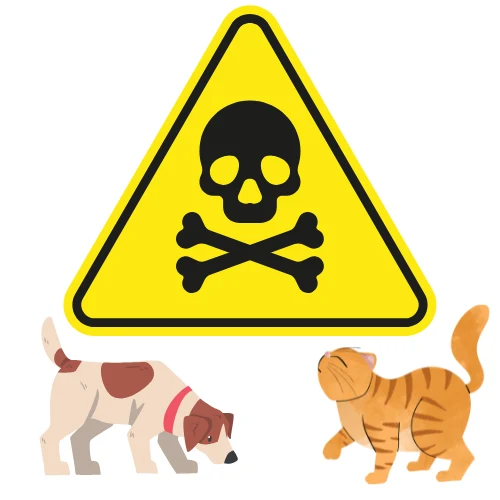Key Takeaways
March is Pet Poison Prevention Month – Take time to assess and remove hazards from your home
Secure harmful items – Keep medications, cleaning products, and toxic foods out of reach
Monitor water quality – Use filters and stay updated on contamination alerts
Be cautious with plants – Replace toxic plants with pet-safe alternatives
Watch for symptoms of poisoning – Seek immediate veterinary care if poisoning is suspected
Educate yourself and others – Awareness is key to preventing pet poisoning
March is Pet Poison Prevention Month, an important time to raise awareness about the many hidden dangers lurking in our homes and surroundings. While we take great care to keep our pets safe, everyday items, ranging from food and cleaning supplies to plants and water sources, can pose serious poisoning risks. Therefore, understanding these hazards and taking proactive steps can help keep your furry friends safe and healthy.
Water Safety: Is Your Pet’s Drinking Water Safe?
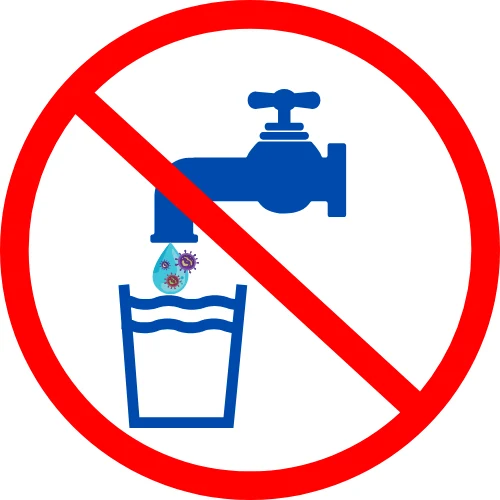
We often assume that the water we drink is safe for our pets, but physical, chemical, biological, and radiological contaminants in both well water and public water systems can be harmful. Common contaminants include:
Bacteria: E. coli and other harmful microorganisms
Chemicals: Lead, arsenic, nitrates, PFAS, etc.
Pesticides & Herbicides: Atrazine and glyphosate, for example
Radiological Compounds: Radon and uranium
Monitoring water quality is crucial for your pet’s health. Home filtration systems, such as faucet-mounted or whole-house water filters, can reduce contaminants. Stay updated with local water authorities about contamination alerts like the Lisbon, Maine arsenic scare and Brunswick, Maine PFAS spill, which impacted public water systems.
Chemical Dangers: Household Products & Medications
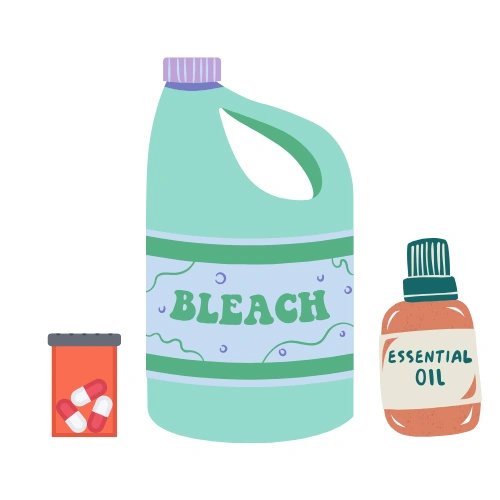
Many household items marketed as “pet-safe” or “pet-friendly” can still pose risks if ingested or overexposed. “Pet-safe” really means “safer, but not entirely”. Some of the most common culprits include:
Cleaning Products: Bleach, ammonia, and even “pet-safe” urea and magnesium chloride ice melts can cause stomach upset, burns, or toxicity.
Medications: Human prescriptions and over-the-counter (OTC) drugs account for 30-40% of annual pet poisoning cases. OTC medication has been the #1 pet toxin in the home in 7 of the last 10 years. When not #1, OTC medications have been #2 on the list. Keep medications stored securely and never give human meds to pets without veterinary guidance.
Essential Oils: Cats, in particular, are sensitive to oils like tea tree, eucalyptus, and citrus, which can cause vomiting, upset stomach, nervous system problems, liver damage, or even respiratory issues.
Food Hazards: Not Everything We Eat is Safe for Pets
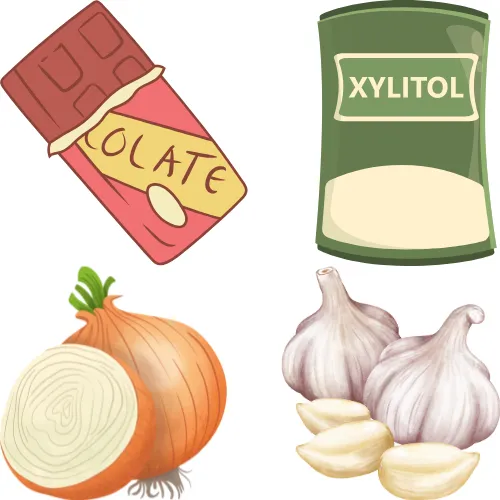
Certain human foods are highly toxic to pets. Human foods were listed in the top 3 most common toxins in the home in 8 of the last 10 years making up 10% of all calls to pet poison hotlines. Some of the most common toxic foods include:
Chocolate & Caffeine: Theobromine and caffeine can cause vomiting, seizures, and even death.
Grapes & Raisins: Even small amounts can cause kidney failure in dogs.
Onions & Garlic: Can lead to red blood cell damage and anemia.
Xylitol (Artificial Sweetener): Found in sugar-free gum and some peanut butters, it can cause a dangerous drop in blood sugar and liver failure with death a real possibility.
Check out our blog on pet food recalls. Spoiled and poorly manufactured pet food can contain harmful bacteria. It can also contain aflatoxins from mold. Staying informed can help prevent poisoning and illness in your pets.
Plants: Common Greenery That Could Be Deadly
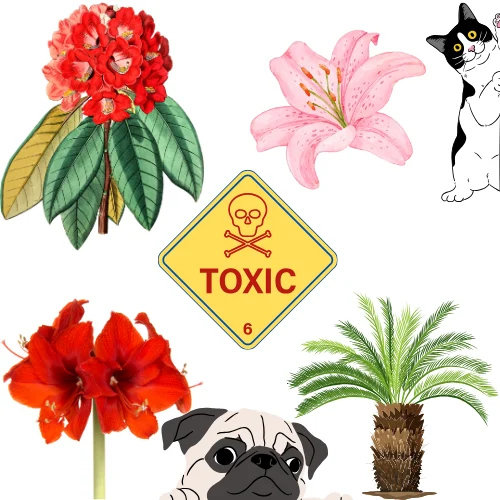
Indoor and outdoor plants can be toxic to pets. About 5% of all pet poison calls each year are for suspected ingestion of toxic plants. Some of the most dangerous include:
Amaryllis: Entire plant is toxic and can lead to vomiting, tremors, and seizures
Autumn Crocus Entire plant is toxic leading to severe symptoms including respiratory failure and death
Cyclamen: In large amounts, seizure and death are possibilities
Elephant Ear: Small amounts are capable of causing respiratory problems and death
Lilies: Extremely toxic to cats, even small exposures can cause kidney failure.
Oleander: Small amounts are capable of causing death
Rhododendron: Highly toxic plant commonly found on properties here in Maine leading to possible coma and death
Sago Palm: Can cause liver failure and death if consumed.
If you have toxic plants in your home or garden, consider replacing them with pet-safe alternatives. Rover has a great article on safer alternatives to common household plants.
Automotive & Outdoor Hazards

Antifreeze (Ethylene Glycol): One of the deadliest household toxins for pets. Even a small amount can cause kidney failure or death. One teaspoon of antifreeze for a cat and 1-2 tablespoons for a dog can be fatal. If you suspect ingestion, immediate veterinary care is essential.
Rodenticides & Pesticides: These account for 10-15% of poisoning cases annually. Opt for pet-safe alternatives and store chemicals securely, or eliminate their use altogether.
Fertilizers & Mulch: Some mulches contain cocoa byproducts that are toxic to dogs, while certain fertilizers can cause severe gastrointestinal distress.
What to Do If You Suspect Poisoning

Signs of poisoning vary but may include vomiting, diarrhea, lethargy, seizures, or difficulty breathing. If you suspect your pet has ingested a toxin:
Contact your veterinarian immediately.
Call a pet poison control hotline for guidance:
- Pet Poison Helpline: 1-855-764-7661 ($85 consultation fee)
- ASPCA Animal Poison Control Center: 1-888-426-4435 ($95 consultation fee, 90% of fee covered for ASPCA Pet Health Insurance members)
Prevention Is the Best Protection
Take pet poison prevention seriously by reducing poisoning risks:
Store household chemicals, medications, and food items securely.
Research all plants and foods before bringing them into your home.
Monitor your pet’s behavior and surroundings—supervise and be an investigator if something seems off.
Use pet-safe alternatives for cleaning and lawn care.
Complete and keep up-to-date with Pet First Aid & CPR training.
By staying informed and taking preventive measures, you can certainly help keep your beloved pets safe from poisoning hazards. This Pet Poison Prevention Month, take a moment to evaluate your home for risks and make the necessary changes to protect your furry companions.
